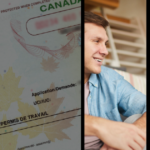Ensuring the integrity of Canada’s borders is a top priority for Immigration, Refugees and Citizenship Canada (IRCC) and the Canadian Border Services Agency (CBSA). These agencies rigorously assess the admissibility of every foreign national seeking entry into the country to mitigate potential risks, including criminal activity.
Individuals may also face medical inadmissibility to Canada if they pose a threat to public health or safety or if their condition is expected to strain health and social services. Additionally, family members of candidates applying for family class or spousal sponsorship immigration undergo scrutiny, including medical examinations and assessments for criminal or security reasons. Applicants and family members over 18 typically need to provide police certificates or records of non-conviction.
In cases where a family member is deemed inadmissible, the principal applicant may also be considered inadmissible, particularly if the inadmissible family member is a spouse, common-law partner, dependent child, or grandchild under the applicant’s care or authority.
However, certain conditions may exempt an applicant from being deemed inadmissible due to a family member’s status, such as being a temporary resident or applicant and if the inadmissibility is not related to security, human rights violations, or organized criminal activity.
The Immigration and Refugee Protection Act (IRPA) differentiates between permanent and temporary residents regarding family member inadmissibility. Permanent residents face broader criteria for inadmissibility compared to temporary residents, reflecting the expectation that permanent residents may sponsor family members while temporary residents are expected to depart Canada after their stay.
In cases where a family member is deemed inadmissible, full disclosure of this information is imperative in the applicant’s immigration application to avoid misrepresentation. To address inadmissibility, several options are available:
- Temporary Resident Permit (TRP): A TRP allows temporary access to Canada for up to three years, depending on the purpose of entry. It is granted when the benefits of the individual’s entry outweigh any risks to Canadian society. TRP applications can be made at any time and do not require completion of a criminal sentence.
- Criminal Rehabilitation Application: This application permanently clears an individual’s past criminal history for entering Canada. Once approved, the individual is no longer considered inadmissible and does not require a TRP for entry. Eligibility criteria include committing an offense outside Canada equivalent to a Canadian Criminal Code offense, admitting to or being convicted of the act, and completing a five-year period since the sentence was completed.
- Legal Opinion Letter: A legal opinion letter, drafted by a Canadian immigration lawyer, outlines the implications of a guilty verdict on Canadian immigration. It assists authorities in understanding the impact of various charges and convictions on an individual’s admissibility to Canada.
Understanding these options and their eligibility criteria is essential for individuals dealing with family member inadmissibility issues when seeking entry to Canada. Full compliance with disclosure requirements and exploring appropriate avenues for overcoming inadmissibility can facilitate a smoother immigration process.







